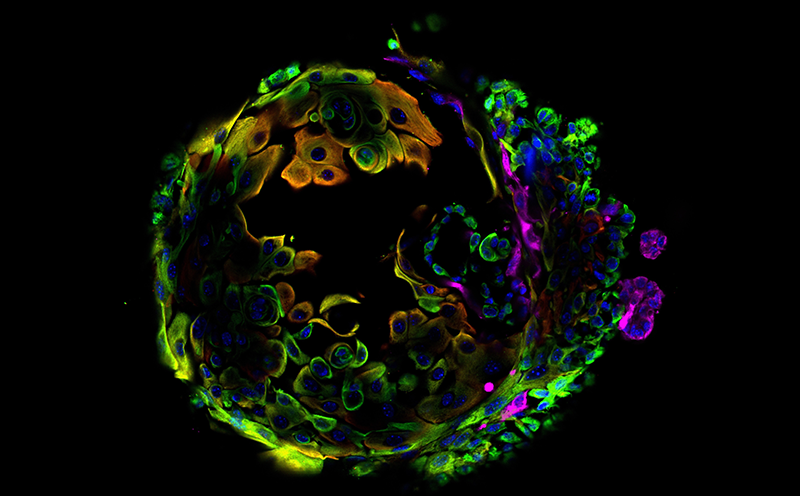
Celebrating 25 Years of the Human Genome Sequence

25 years later: Inside the cut-throat race to decode the human genome

’We couldn’t live without it’: the UCSC Genome Browser turns 25

The Human Genome Project’s legacy is still yielding new advances
Learn more about the history of the UCSC Genome Browser and Genomics Institute

Interdisciplinary
Research
We are a diverse and multidisciplinary research institute that fosters collaboration between engineering, physical sciences, biological sciences, and social sciences, with the goal of driving impactful change.

Collaboration
We have members and collaborators throughout academia and industry. We work with clinicians, marine and fishery researchers, conservationists, public health officials, and others to bring genomics data, tools, and biotech to some of the world’s most pressing problems.

Mentorship
Training the next generation of scientists is a vital part of what we do. Learn about our educational programs and our efforts to bring experiential learning to students from secondary to graduate school.
Impact Highlight
Newly licensed pediatric cancer lab will provide new hope for children with hard-to-treat cancers
“Our team is exceedingly motivated by the power of our specialized analysis. In the next ten years, we hope that this analysis can be offered to every pediatric patient, so that during one of the most difficult periods of their lives, more families will be able to hear someone say, ‘we know exactly what this is and how to treat it.’”
– Olena Vaske,
Professor of Molecular, Cell, and Developmental Biology
Technical Supervisor of the Colligan Clinical Diagnostic Laboratory

Genomics Institute News

Immersion in childhood cancer research transforms undergrads into scientists—and advocates
The Treehouse Childhood Cancer Initiative is giving 80 students the opportunity to become cancer researchers for a quarter, thanks in part to generous funding from the UCSC Degree-Defining Experiences Program and the Dragon Master Initiative.

How early pregnancy impacts aging: implications for breast-cancer risk
New study by UC Santa Cruz team discovers that early pregnancy in mice reduces buildup of ‘confused’ cells that could lead to breast cancer later in life

Three UC Santa Cruz professors and one student recognized as Santa Cruz Works ‘Titans’
This recognition celebrates their contributions to the region’s technology, innovation, and entrepreneurship ecosystem.
Video Highlights
A Lifetime of Achievement in Genomics
Completing a Human Genome
Stoping Extinction Through Studying Ancient DNA